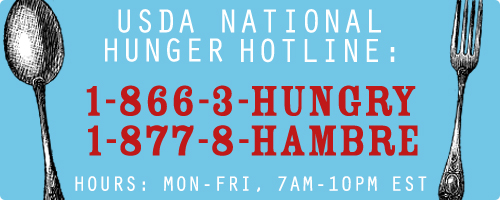Community Eligibility can combat child hunger by increasing school meal participation…but schools must ACT QUICKLY!

More than 500 high-poverty schools in South Carolina are eligible to use a powerful new tool known as community eligibility. This tool increases the number of children eating school meals and reduces paperwork by providing school meals to all students free of charge this upcoming school year.
SC Appleseed is at work helping Superintendents, Principals and other school leaders in South Carolina understand what community eligibility is, how it could impact their schools, and why it is critical for them to opt in.
COMMUNITY ELIGIBILITY FIGHTS HUNGER
The Community Eligibility Provision (CEP) helps ensure that low-income children, whose families are often struggling to put food on the table, have access to healthy meals at school. In the eleven states that offered the community eligibility provision as part of the initial roll-out, over 4,000 high-poverty schools participated. This coming school year, the community eligibility option will be available to qualifying schools in every state. Initial results show that CEP is leading to more children participating in school meals, and particularly increasing the number of children eating breakfast, an underutilized program that many schools are seeking to expand. In addition to the negative impact that hunger has on overall growth and health, children who struggle with hunger also have to cope with its effects on their success at school, including (among other things):
- lack of concentration
- slower recall
- diminished academic performance
- emotional and behavior difficulties
- increased absence and tardiness
 COMMUNITY ELIGIBILITY HELPS CHILDREN:
COMMUNITY ELIGIBILITY HELPS CHILDREN:
We have seen the success of community eligibility in reaching at-risk children in the states where it has already been implemented. Because of the high poverty rate across South Carolina, over 50% of our schools qualify for this program, providing significant support to the schools who will be able to participate this year.
In South Carolina, 20.4% of households with children lack access to adequate food.
Community eligibility will help ensure that we are reaching more of our children in need of nutritious breakfast and lunch, helping them to succeed in the classroom and improve their health and long-term well-being.
COMMUNITY ELIGIBILITY HELPS SCHOOLS:
In addition to helping reduce hunger for greater numbers of low-income students, community eligibility also helps schools and school districts streamline their operations and reduce paperwork. When more children eat, the per-meal cost of serving meals decreases. These economies of scale, combined with administrative simplifications, help to cover the cost of providing meals to students who might otherwise pay. And, less paperwork frees up resources to invest in improving meal quality and increases staff time available for other educational priorities.
657 SCHOOLS IN SC QUALIFY…but they must ACT QUICKLY:
Community eligibility is available to schools where 40% or more of the students are approved for free meals without an application because they have been identified as eligible by another program with a rigorous eligibility determination process, like the Supplemental Nutrition Assistance Program (formerly the Food Stamp program). Since many additional students in these high-poverty schools are approved with an application, in the year prior to implementing community eligibility, 82% of children in participating schools in Illinois, Kentucky, and Michigan (the first three states to offer community eligibility) were approved for free or reduced price meals.
Eligible schools will have until June 30th to decide whether they will participate in community eligibility.
SC APPLESEED IS HELPING:
We believe this is an exciting opportunity that schools in our state should seize. Adopting the Community Eligibility Provision (CEP) can provide significant benefits not only to South Carolina’s high-poverty schools, but also to the many students they serve who might otherwise struggle to get enough food to eat each day. We are currently working with the SC Association of School Administrators, the South Carolina Department of Education and the South Carolina School Board Association to coordinate and facilitate a free webinar for all South Carolina school and District leaders.
WEBINAR: Community Eligibility: Eliminating School Meal Applications
DATE: Thursday, June 12, 2014
TIME: 11:00am – 12:00pm EST
HOSTS: SC Appleseed and the Center on Budget and Policy Priorities
FOCUS: The webinar will include an explanation of how CEP works, implications for state education funding, and a discussion of implications for Title I by Title I staff who oversaw the adoption of CEP last year. We will be bringing in experts from the Center on Budget and Policy Priorities, one of the nation’s premier policy organizations working at the federal and state levels on fiscal policy and public programs that affect low- and moderate-income families and individuals. The CBPP will provide valuable insight into childhood hunger and the positive impact of community eligibility.
It is our hope that all eligible SC schools will take advantage of this important opportunity. It’s a WIN-WIN for the school and it could change the future for a child.

![]() SC Appleseed’s work on hunger issues in South Carolina is funded through the Food Research and Action Center (FRAC) by the Walmart Foundation. Together, they provide resources for us to work on child nutrition and SNAP issues in South Carolina.
SC Appleseed’s work on hunger issues in South Carolina is funded through the Food Research and Action Center (FRAC) by the Walmart Foundation. Together, they provide resources for us to work on child nutrition and SNAP issues in South Carolina.
**Photo courtesy of the US Department of Agriculture. It is a picture of students eating a school lunch at Yorkshire Elementary School in Manassas, VA.


